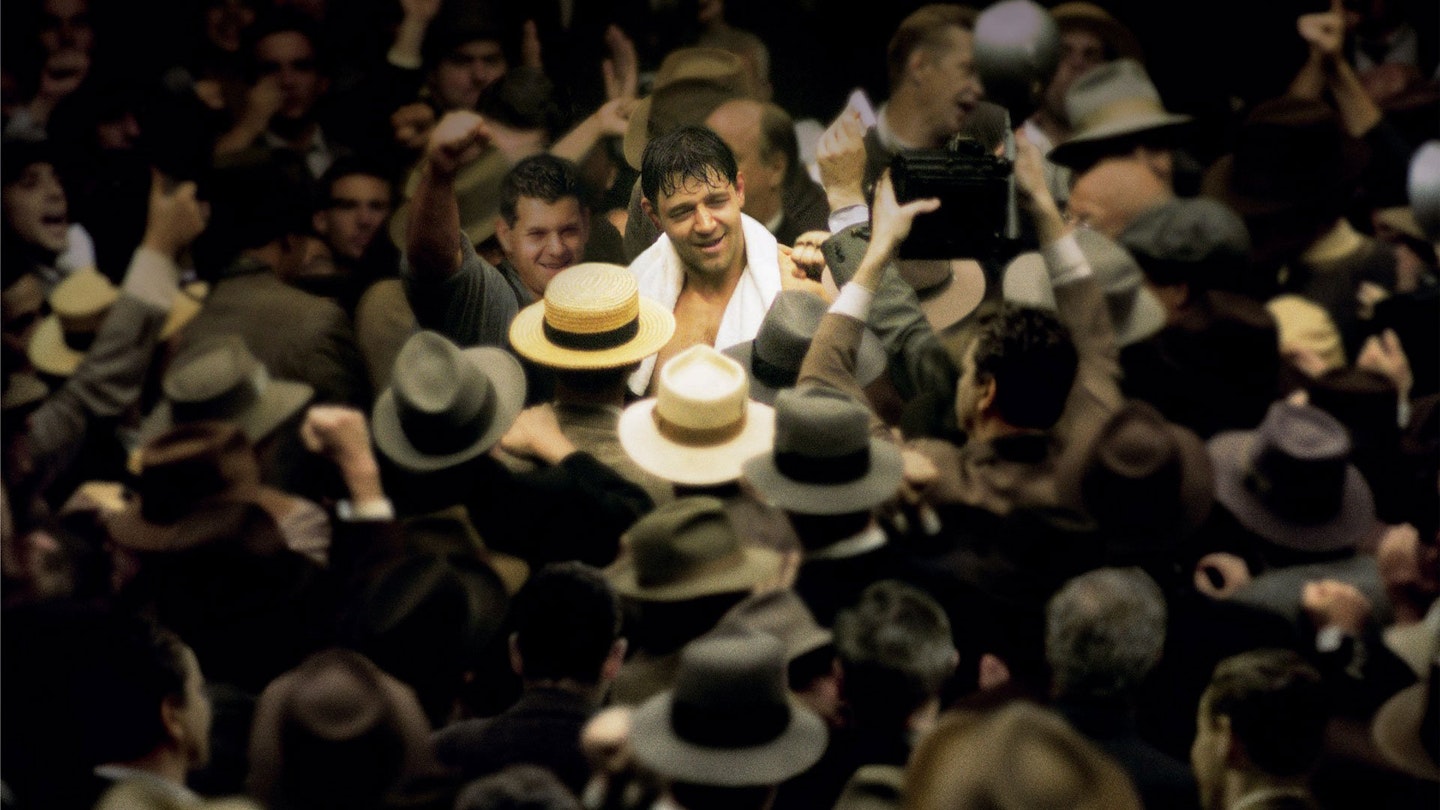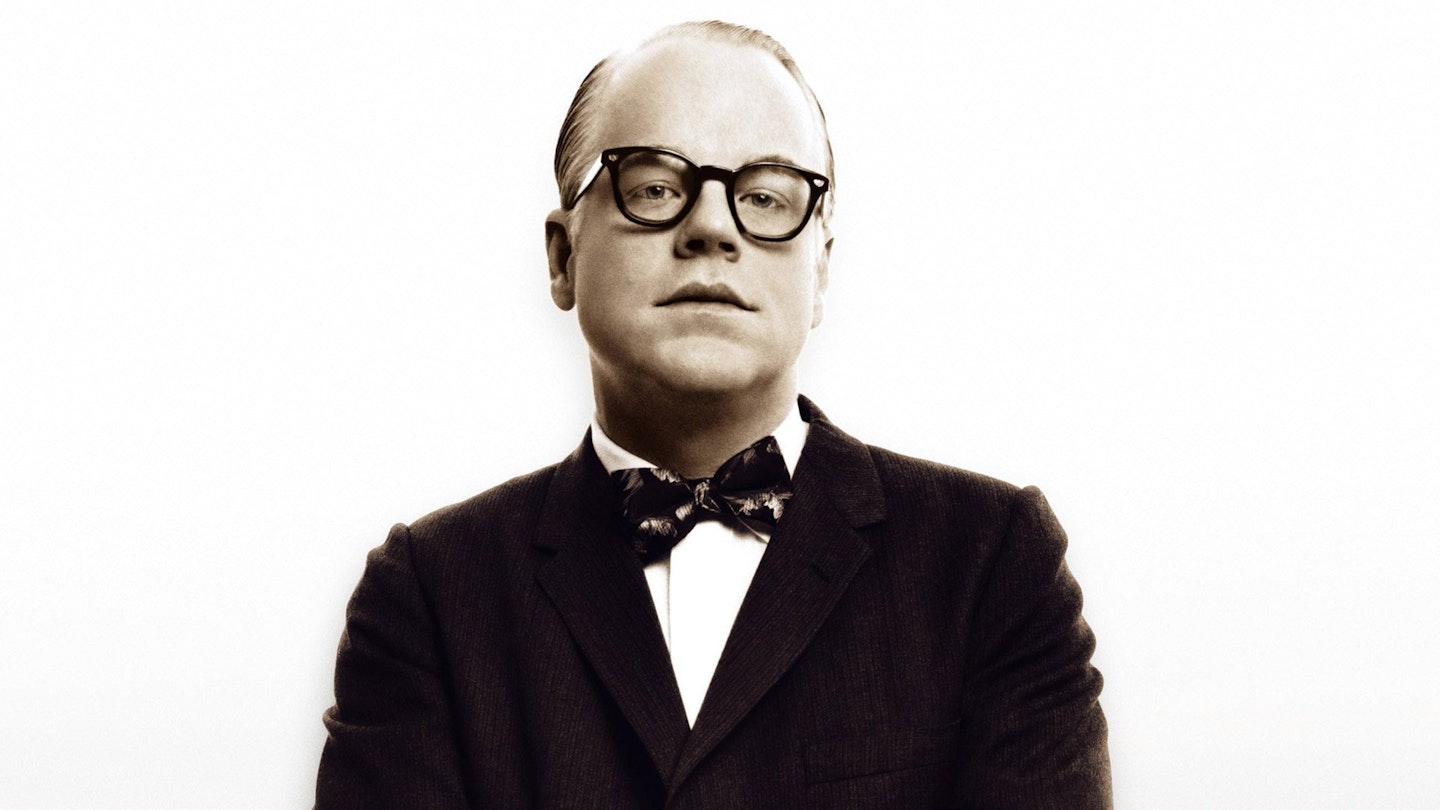It would be easy to write off Cinderella Man sight-unseen. Co-written by Akiva Goldsman (still wanted for crimes against screenwriting in more than 40 states following Batman & Robin and Lost In Space) for genial journeyman Ron Howard, this tale of an underdog who triumphs over adversity is, on paper, noble, worthy, dull awards-season fodder. But, like Howard’s Apollo 13, this pugilistic powerhouse is a beautifully modulated showcase for the director’s ability to take a yarn where the outcome is a given and spin the inevitable into dramatic gold. It’s a neat, enviable trick, delivered with gravitas, danger and an emotional uplift long overdue after the darkness of summer.The real-life Braddock’s rise (the film opens with the boxer in punishing form), fall (the Braddock family battling poverty after the Wall Street Crash) and slow climb back to the top seemingly invented The Boxing Movie Cliché Handbook — from pressure on Braddock to throw a fight to the Raging Bull Flashbulb And Body-Punch Combo™, it’s all here — but Howard’s artistry pulls you through. This is confident craftsmanship, peaking in the last-reel showdown between Braddock and human bear Max Baer (Craig Bierko); Howard knows that, by this time, he’s won your investment, and has the assurance to play out the final bout at brutal, compelling length.Allied to the filmmaking know-how is Howard’s unstinting commitment to the values of his hero and the story’s emotional truth. When Braddock gives back the welfare handout after he picks up a huge fight purse, or forces his son to return a stolen salami, Howard — who, don’t forget, played that apex of dignity, Richie Cunningham — understands these values intuitively. He doesn’t know how to be flippant, ironic or over-sentimental about such ideals — just genuine.
Where the director is less successful is in trying to graft a fairy-tale patina onto the grim reality of Depression-era America, washing what should be down and dirty in nostalgic, fable-esque hues. Elsewhere, the plotting loses sight of Paddy Considine’s down-at-heel stockbroker, who befriends Braddock on the docks before transforming into a bitter political activist. More successfully, Howard manages to evoke the mood in telling period detail — Mae (good work from Zellweger in a tricky supporting role) and kids stealing the wood from an Esso sign after their electricity has been cut off; Gould’s once opulent apartment a hollow shell, emptied of all the trappings of wealth.Yet what really lifts Cinderella Man head and shoulders above genre convention is the one-two combination of Crowe and Giamatti. The latter, as Braddock’s corner man, allies his energetic scrappy-schlep likeability to raw, excitable emotions, nailing Gould in funny, moving, proud colours. But the film belongs to Crowe, still the best synthesis of movie star and actor working today. His restraint and sad reluctance turns Braddock from a too-good-to-be-true shining saint into an unshowy, introspective everyman. When Braddock is forced to go before the boxing bigwigs and beg for money to keep his family afloat, you can almost hear the applause of the Academy Awards audience as Crowe sits in his little splitscreen box. His scenes with Giamatti feel like a privilege to watch, and when they’re together, Cinderella Man transforms from a good film into a great one.

